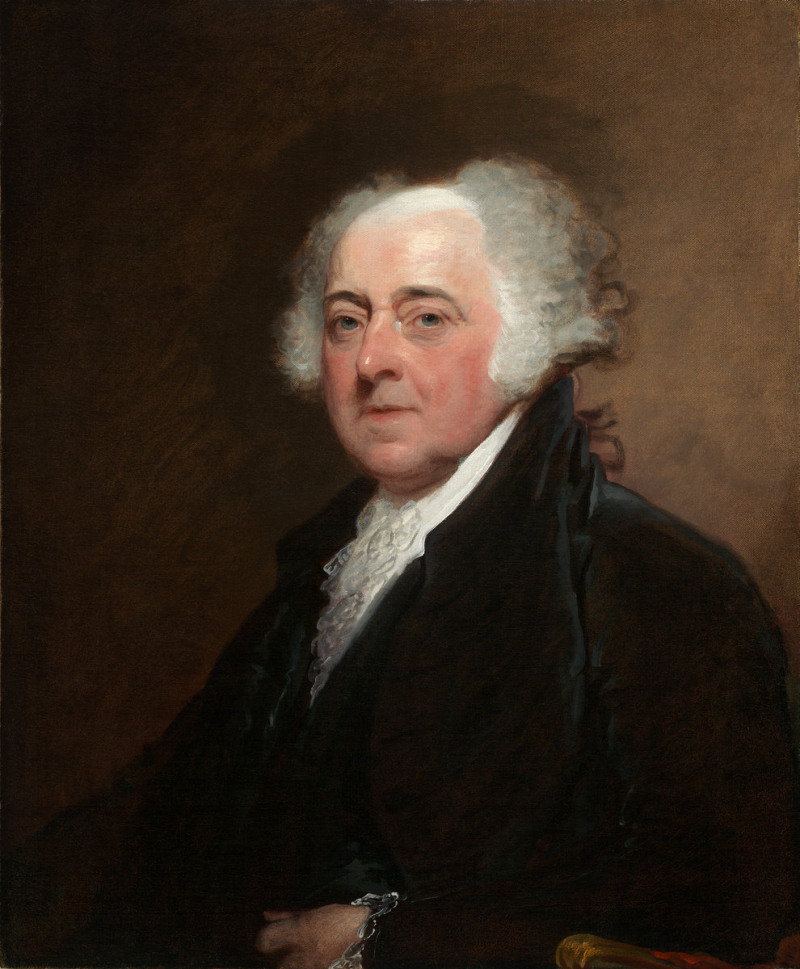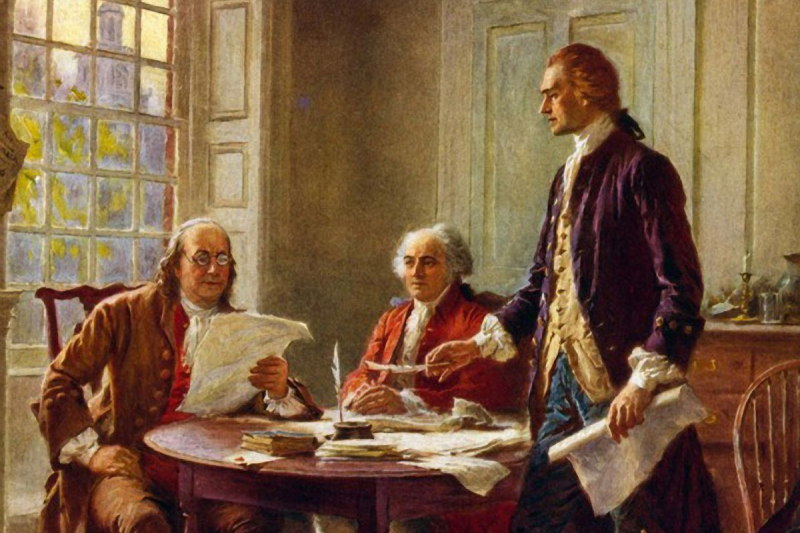John Adams

John Adams (1735–1826) was a founding father, political philosopher, and the second president of the United States (1797-1801). Adams also practiced law and supported the right to an attorney and the presumption of innocence. He was one of the more conservative Founding Fathers, although he supported the American Revolution and worked to have Thomas Jefferson's draft of the Declaration of Independence approved by the Continental Congress. In addition, he served as the US's first vice president (1789–1797) and a foreign diplomat in the UK and the Netherlands.
Adams had favor with the British authorities in the Americas because of his defense of the British soldiers, but he grew increasingly concerned about the expansion of British misrule. The British Crown started paying the judiciary directly, as opposed to the colonial administration, in 1772. Adams believed that this directly posed a threat to judicial independence. Adams declared that the Boston Tea Party was the "grandest event" in the history of the colonial protest movement in 1773, fully endorsing the destruction of tea from the British East India Company.
Adams agreed to represent Massachusetts at the First Continental Congress after the British carried out the "Intolerable Acts" in retaliation for the Boston Tea Party. At the Continental Congress, Adams played a significant role in mediating a deal between moderates who sought to appease the British Crown and the radicals who wanted to proclaim independence. Adams secretly shifted toward yearning for total independence after the first American-British combat at the Battle of Lexington and Concord. He proposed George Washington as the Continental Army's Commander in Chief in 1775. He continued to advocate for reconciliation in public, but his preference for a total breakaway grew over time.
Adams made friends with Thomas Jefferson in 1776, and it was Adams who convinced Jefferson to write the Declaration of Independence. Adams refused, saying that it would be preferable for Jefferson to prepare the declaration as he is a Virginian, a great writer, and has few personal enemies. Initially, Jefferson wanted Adams to write the text. Adams assisted in the document's revision after Jefferson drafted the initial draft before it was presented to the Continental Congress.
Adams was the principal proponent of the Declaration of Independence when it was debated in Congress and overcame objections from conservative members like Dickinson. Later, Jefferson praised Adams, saying “the pillar of [the Declaration’s] support on the floor of Congress, [its] ablest advocate and defender against the multifarious assaults it encountered.”
American Independence was proclaimed on July 4, 1776. Adams detested slavery and was dedicated to its abolition, but he also saw that the moment wasn't right to pass legislation to remove it in order to maintain the support of the southern states for American independence.
Adams was a key figure in the government during the war, contributing to numerous committees and putting in up to eighteen-hour days. He had to labor even harder after American military failures, writing to army leaders to inquire about weapons and supplies and to urge the troops to uphold discipline.
Adams ran for president for the Federalist Party in 1797 because Washington did not want to serve a third term. It was a fiercely partisan election, with the Federalists accusing the Democratic-Republicans of supporting the violence and anarchy of the French Revolution and the Republicans accused the Federalists of being sympathetic to British-style monarchy and aristocracy. Thomas Jefferson was the Democratic-Republicans' leading candidate. Adams ran for the Federalists, but the group was divided since Thomas Pinckney of South Carolina was preferred by Alexander Hamilton to succeed Washington.
Adams fought against the Hamilton faction of his party even while serving as president. The conflict between the French and the British also involved the US. The Alien and Sedition Act (1798), which provided the government the authority to summarily remove persons accused of treason, was passed as a result of the political climate. Jefferson and the Republicans fiercely opposed it, claiming it was unconstitutional, and it was also an assault on the free press.
The French grew increasingly hostile toward the US envoys, drawing the US into a naval-like conflict. Adams strengthened the US fleet, and Congress granted permission to construct new ships. Adams rejected pressure to start a full-scale war, and at the conclusion of his administration, he dispatched a peace envoy to Paris, where after protracted discussions, the quasi-war was resolved. However, the Hamilton Federalists opposed his pleas for peace, and in the hotly contested 1800 election, Thomas Jefferson narrowly defeated him to win the Presidency.
He retired to his farm near Quincy after his election loss. After parting ways politically in 1812, Jefferson and Adams rekindled their close friendship and engaged in lengthy letters in which they also discussed politics.


























